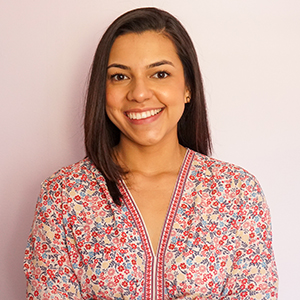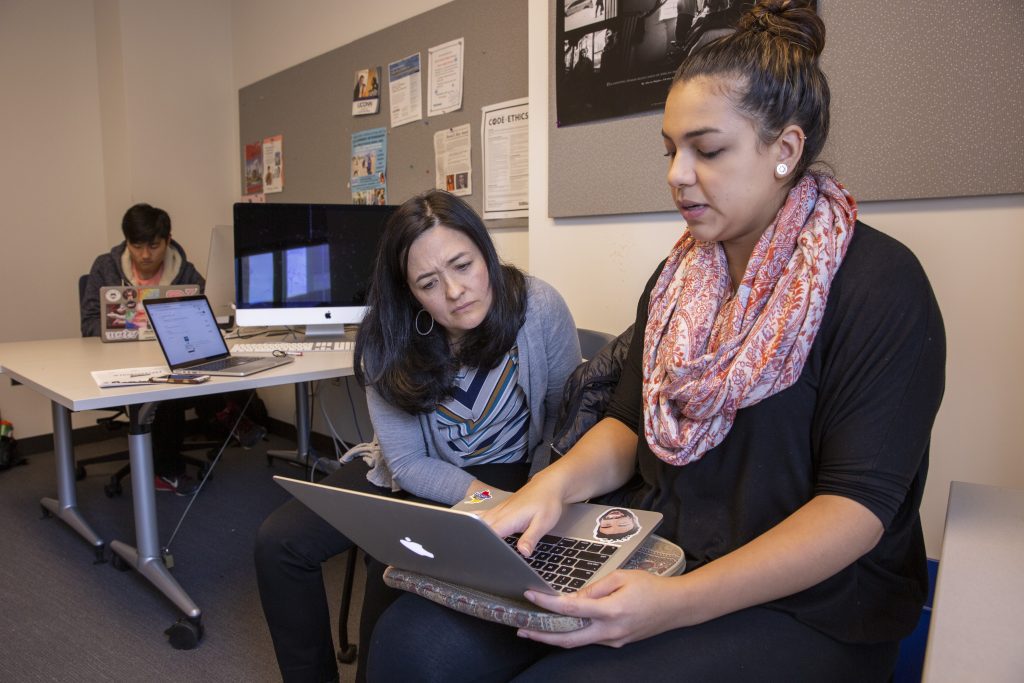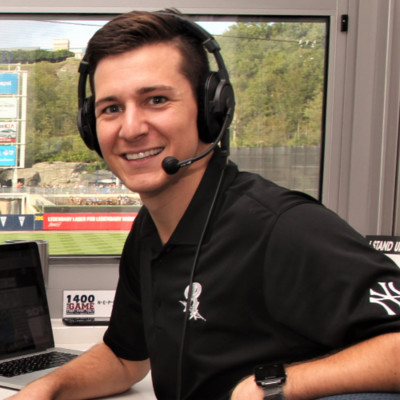We asked three of our alumni how their UConn Journalism education and experiences contributed to their successful career moves into politics and/or public policy. Here's what they told us (lightly edited for length).
Joe O'Leary, Class of 2013
Press Representative for Connecticut Senate Democrats
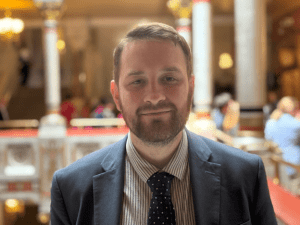
"I never expected to work in this field, but UConn Journalism prepared me for politics and public policy in a variety of ways. The social skills emphasized in finding sources and developing stories relates directly to my work with organizations, advocates and constituents. Training in short- and long-form writing set me up to succeed whether I'm writing a two-sentence blurb about a local meeting for an email newsletter or an editorial published in the Stamford Advocate. What I find most prominent is that UConn Journalism taught students a well-rounded curriculum of skills in fields ranging from photography to video editing, all of which have come directly into play over the course of my career.
"[UConn Journalism's] emphasis on disciplined writing plays a direct role in my success at the State Capitol. It prepared me to be able to quickly analyze and synthesize information with a focus on delivering the most meaningful elements first. Training students in news aggregation and news analysis supports the critical thinking needed for quick and impactful reactions in breaking news situations. Such situations have come fast and furious given world crises like the pandemic and Russia's invasion of Ukraine. Our office's rapid responses rely on discovering accurate information as it's being released into the world. With the proliferation of AI and social media hoaxes and misinformation, it won't get any less relevant.
"Working for Reuters as an intern in Times Square in the summer of 2012 was also a once-in-a-lifetime experience; I wrote a feature story published in the Father's Day issue of the Chicago Tribune and am still listed as a source on the Wikipedia page for the rapper Pitbull 13 years later."
Kathleen McWilliams, Class of 2015
State Communications Director at the Office of U.S. Senator Richard Blumenthal
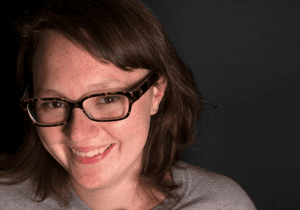
"My UConn Journalism education gave me all the skills to jump into a career in local reporting and then eventually political communications. Without the encouragement and expertise of professors like Kate Farrish and Mike Stanton, I may never have pursued a career in reporting. They were great mentors and advocates, and instrumental in encouraging me to write bigger stories for The Daily Campus, freelance for Connecticut news organizations and apply for competitive internships. Without those experiences, I wouldn't have landed a job at The Hartford Courant and then eventually my current role with Senator Blumenthal's office.
"The most important skill I learned was how to think deeply about a complex topic and repackage it for a mainstream audience on a tight deadline. When writing and reporting for a newspaper, you usually have a limited amount of time and space to tell a story and every word matters. The same is true of communications. I frequently have to digest complicated topics like energy policy or the behemoth that is the Federal Defense budget and work out how to effectively and efficiently communicate the highlights to reporters and Connecticut residents.
"My journalism also trained me to consider and evaluate both sides of a story and multiple viewpoints, which is a useful skill in politics and policymaking. You always want to be interrogating what you're saying, how you're communicating it and why it's important."
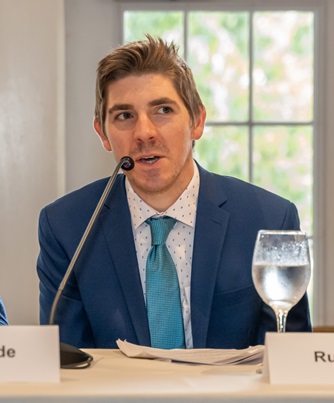
Russell Blair, Class of 2011
Director of Education and Communications for the Connecticut Freedom of Information Commission
"I always felt strongly that whatever I did after graduation, my journalism education would be immensely valuable for helping me to become a strong and clear communicator. In my current role, I am frequently called upon by government officials to provide succinct advice about the state Freedom of Information Act, often on a quick turnaround. I also help prepare testimony on pending legislation at the state Capitol. Anyone testifying before a legislative committee is given just three minutes, so the ability to coherently and clearly make your argument is critical.
"One of the most valuable things UConn Journalism pushed me to do was consider a double major in a related field. I graduated with a double major in Journalism and Political Science, and through my Political Science classes, I gained a wealth of experience about government and the legislative process. That background knowledge proved immensely helpful as I transitioned from journalism into the public sector."
"I remember looking forward each week to Professor Marcel Dufresne's Professional Seminar course, where industry professionals visited each week to discuss their careers and offer advice to students. The course was a great supplement to the more skills-based classes and the presenters were very generous with their time and answering our questions. I also enjoyed Media Law with [adjunct] Mitchell Pearlman, who was the retired executive director of the Freedom of Information Commission where I now work! Lastly, I can't forget my digital news internship at The Hartford Courant with Professor Marie Shanahan, who was digital editor at the newspaper at the time."
Learn more about majoring or double majoring in journalism at UConn. Are you a UConn Journalism alum with career advice to share? Get in touch at journalism@uconn.edu
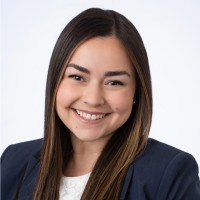
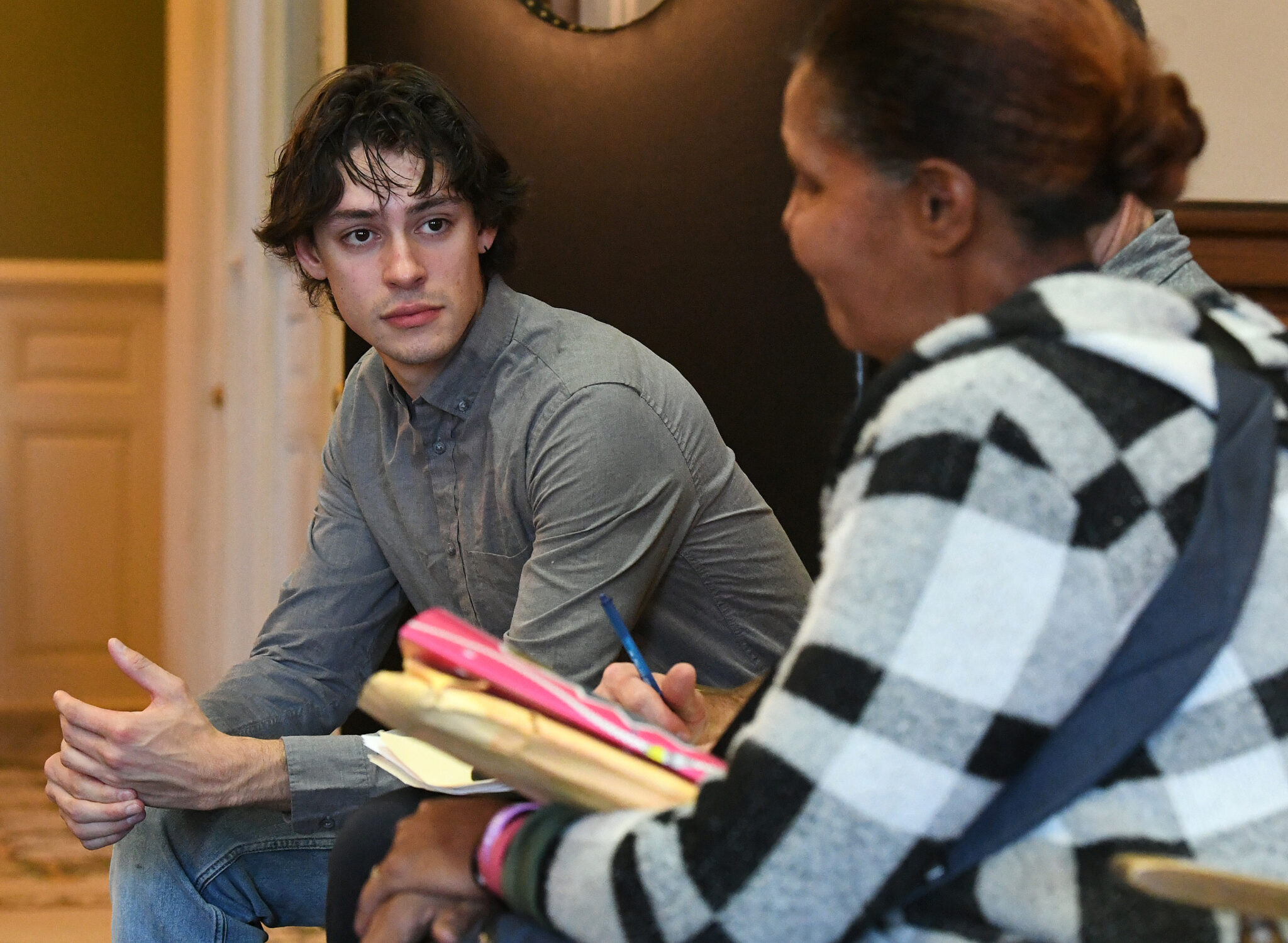
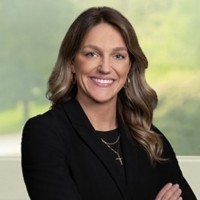
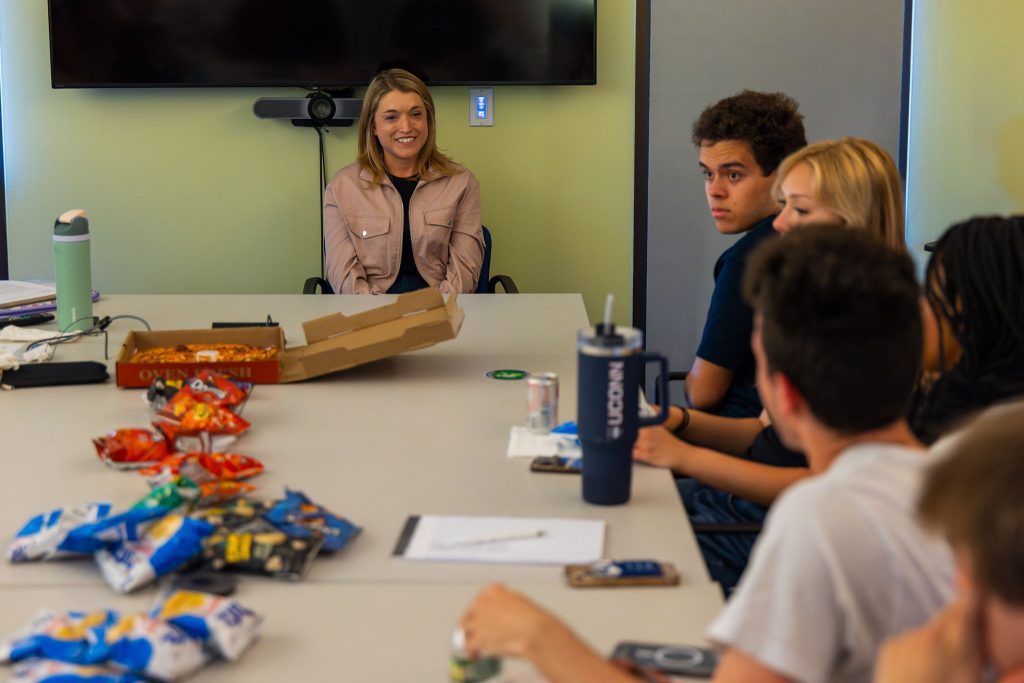
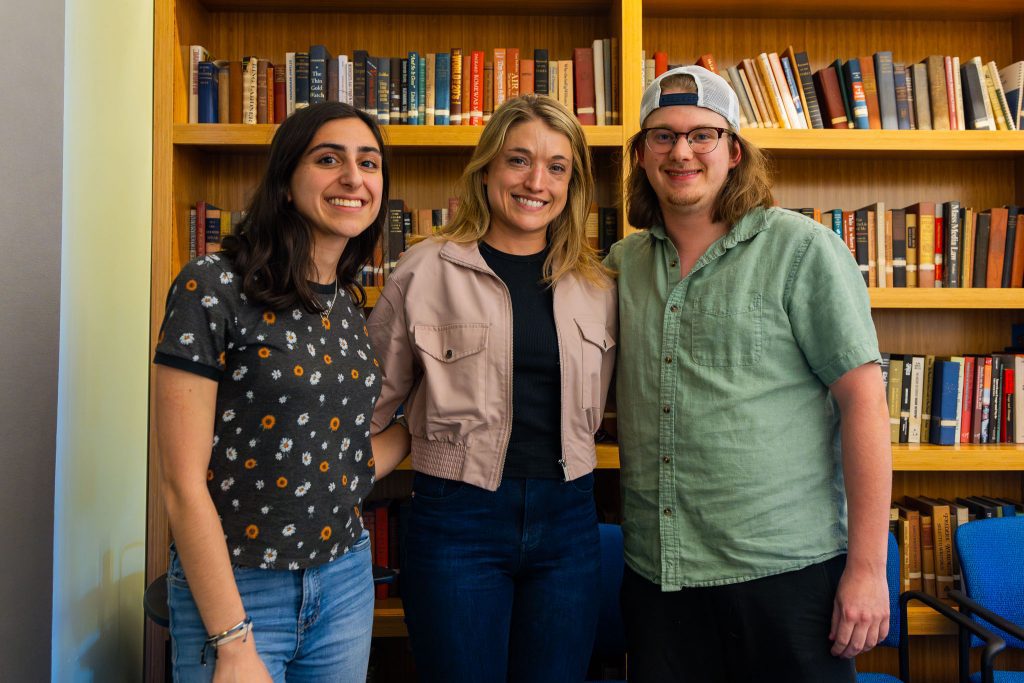
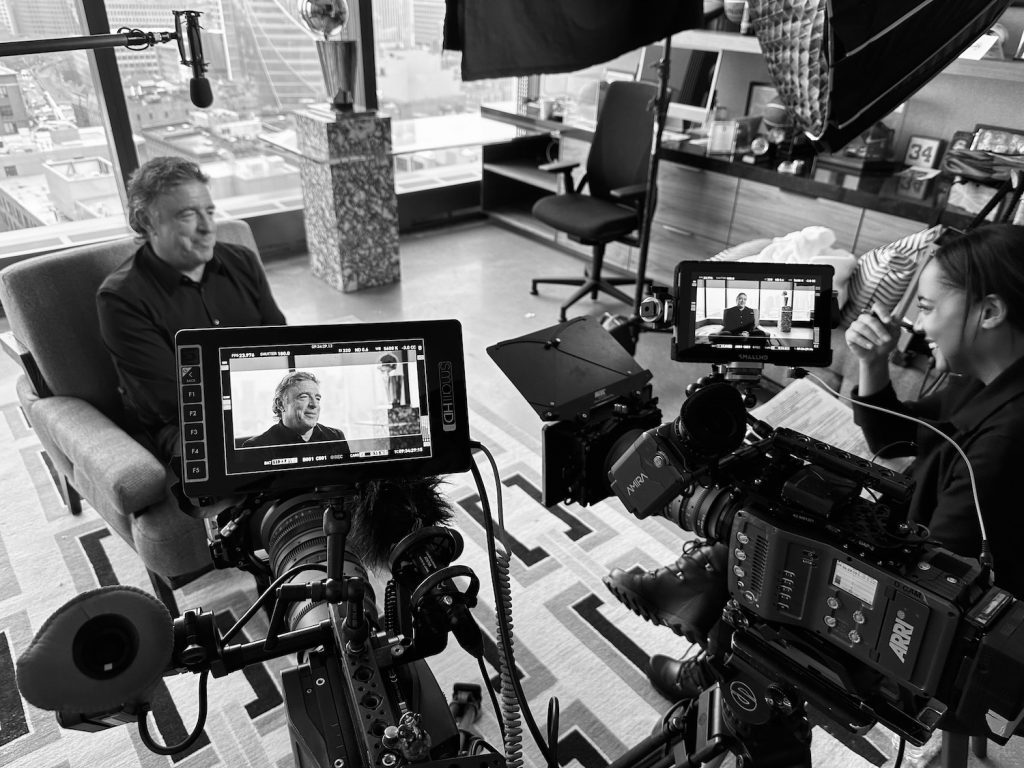
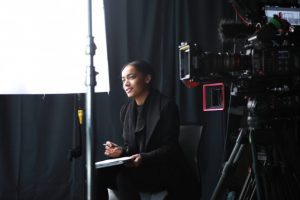
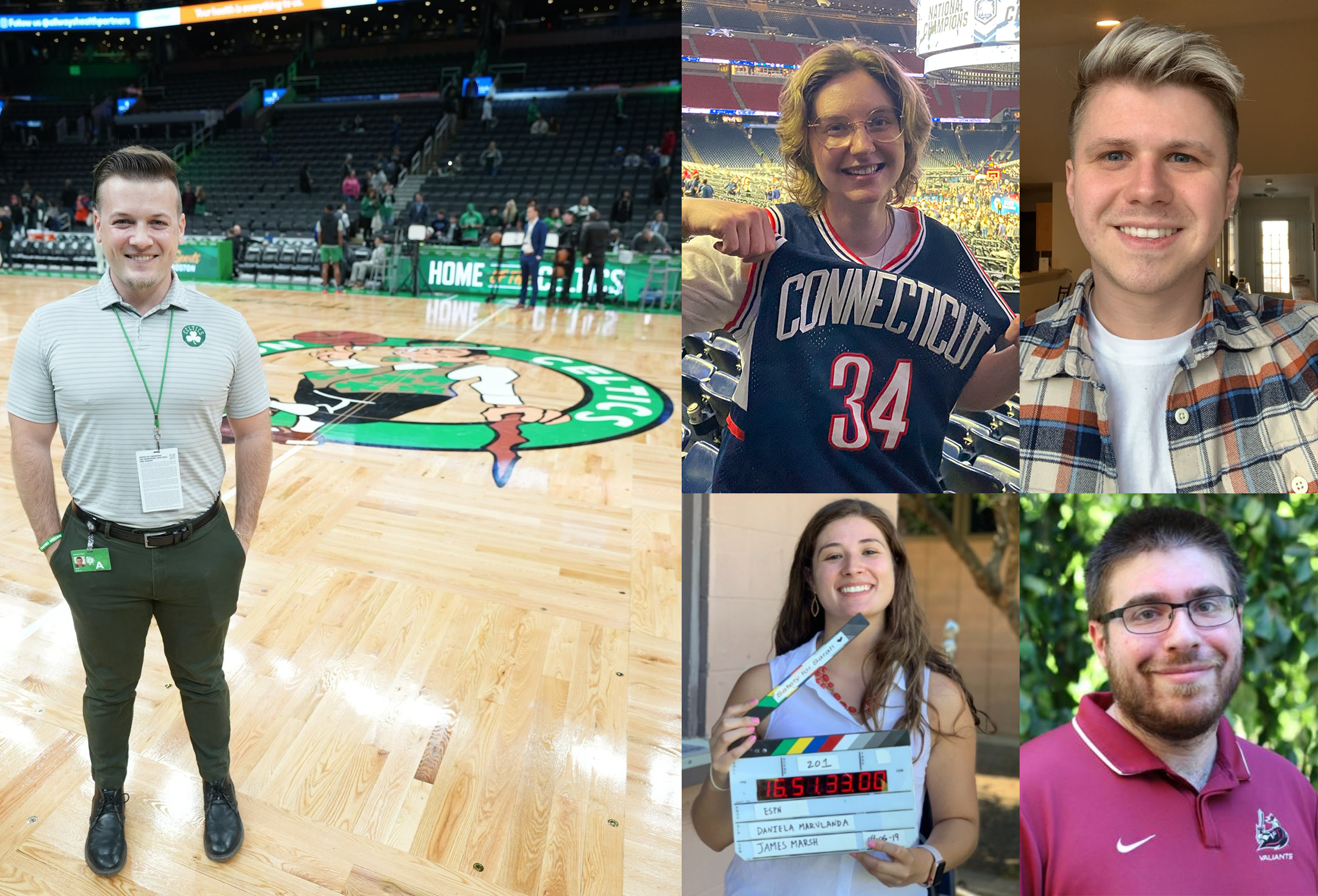
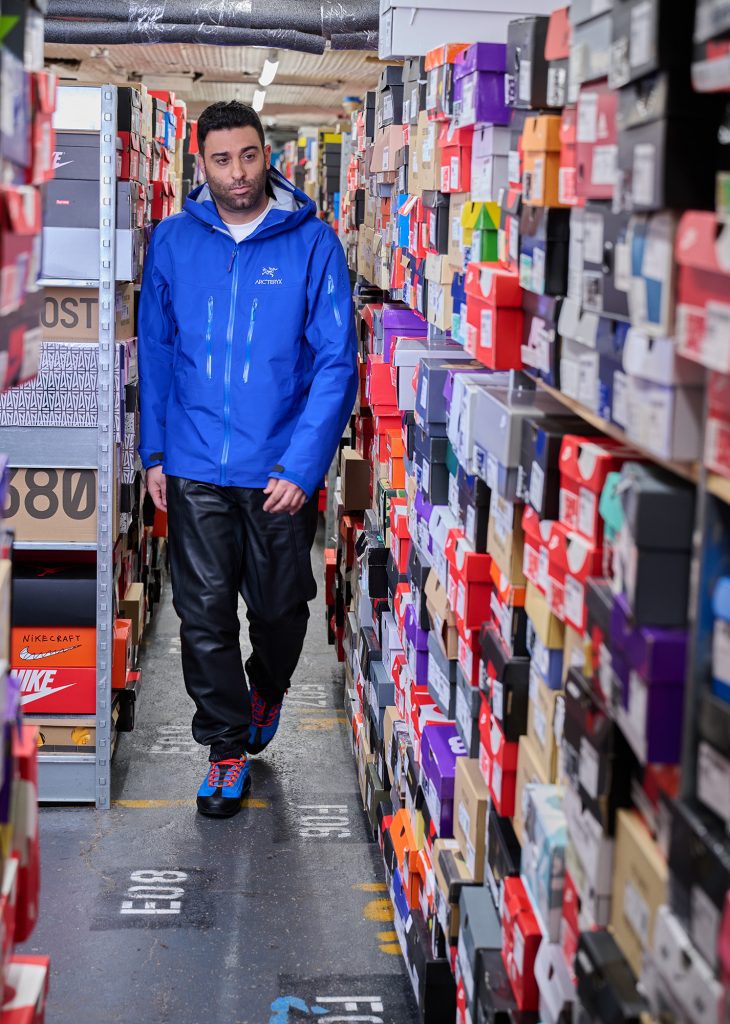
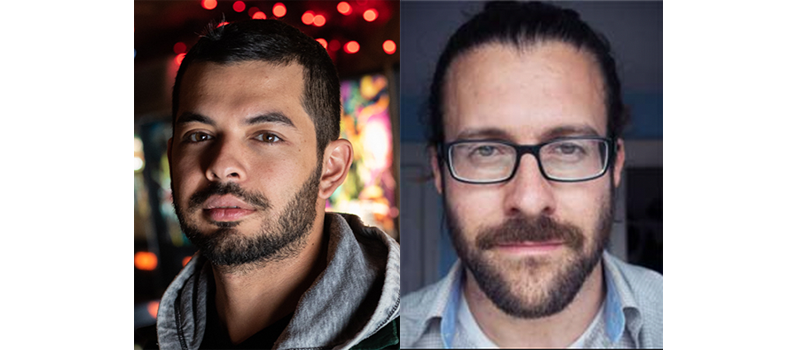
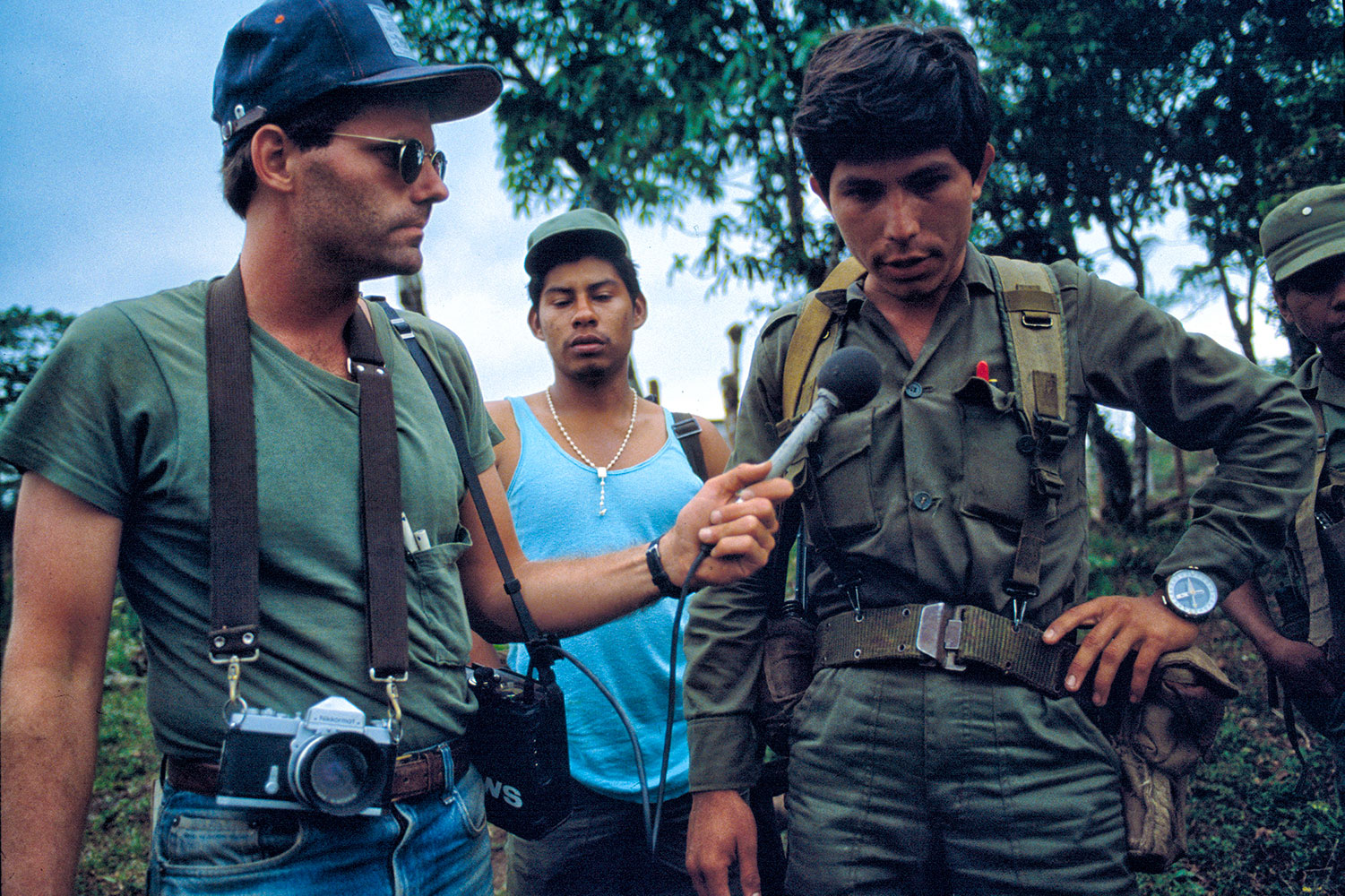
 After her top-10 finish in the 10K final at the 2021 Olympic trials, Emily Durgin ’17 (CLAS), who won nine American Athletic Conference individual championships at UConn while earning her journalism and communications degree, decided to take it up a notch.
After her top-10 finish in the 10K final at the 2021 Olympic trials, Emily Durgin ’17 (CLAS), who won nine American Athletic Conference individual championships at UConn while earning her journalism and communications degree, decided to take it up a notch.